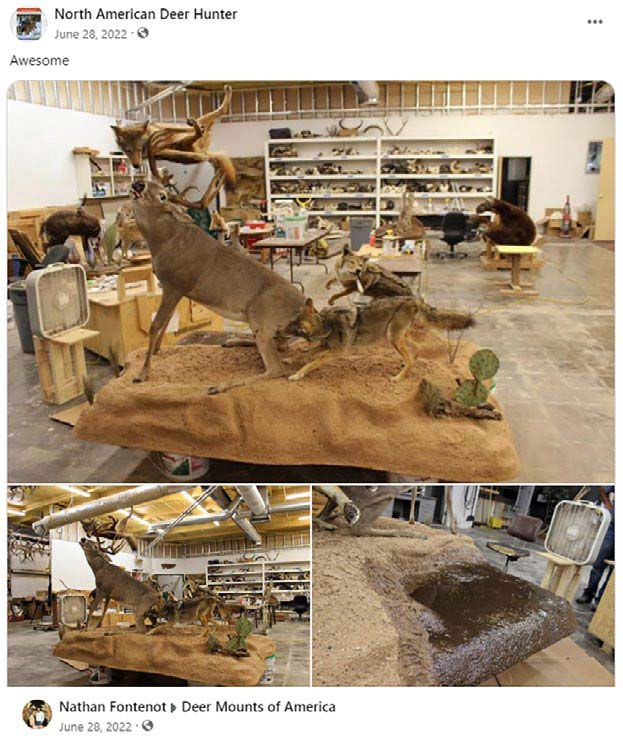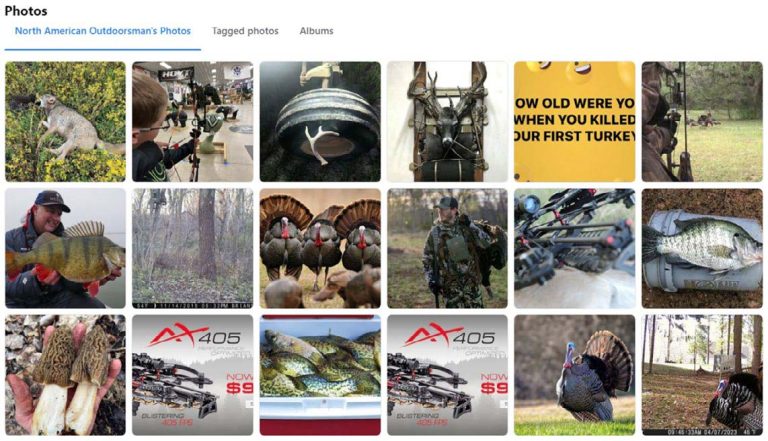I used to be a staunch defender of social media’s role in the modern hunting world. It provided just a bigger kind of campfire, I thought. It was a way for outdoors folk from all over the world to connect, support and, hell, maybe even unite over a common goal.
Now, I’m not so sure. I normally like to stick to facts. However, this is not an article with many of said facts. So, you’ve been warned. Opinion piece incoming!
I spend a lot of time on social media. It’s a massive tool for our restaurant business and one in which we have to participate. Consequently, I spend a large portion of my work week on social media. So, while some of my points may be rooted in opinion… this opinion is not.
We’ve all heard it. Social media is bad for us. There are unrealistic comparisons. It’s wasted time. There is misinformation. But why do I feel it’s specifically so harmful to our hunting community? Well, that’s as complicated as it is simple.
The simple answer: humans can be narcissistic, attention-seeking greed bags that will do anything for fame and/or fortune.
The not-so-simple answer: – since I don’t want this to come across as hypocritical, I’ll admit it. Social media has negatively influenced my decision-making in the field.
I’ll bet it has for some of you, too. Intentionally or inadvertently, some sort of decision has been altered due to awareness of social media and the pressures or expectations that can come along with it. Mine have always been around what to share and what not to share. I’ve not shared poor shot placements. The reasons behind that are because I felt stupid. So I did that instead of helping others learn from my mistakes and showing that anything can happen to anyone while bow hunting. I often choose to tell a different story on social media—one that made me seem a little bit better.
Now, I consider myself an ethical hunter. I’m a softy for animals and an even bigger softy for rules. I don’t like breaking them, especially the unspoken ones. So, bashing other hunters isn’t really in my wheelhouse. But the social media world sure has done a great job of highlighting the divide among hunters and in society as a whole. I see this more and more as I dive into the comments sections of the industry’s big “influencers.” I believe this is a very thin line to walk. One on hand, social media is a powerful tool to start holding some of the less “ethical” hunters and platforms accountable. We’ve seen gruesome kill shots. We’ve seen not dispatching injured animals immediately. We’ve seen laughing and a seemingly careless approach to taking a life. All these add fuel to the fire for the anti-hunting community. As soon as one of these videos is shared, it becomes another dark spot on an already blemished image. But I do feel that social media can have a positive influence in the role of accountability and public perception in hunting. However, this can go too far when we start judging folks for the size or gender of animal taken, the weapon used and so on.
The Pressures
There have been a lot of court cases in the media lately regarding “celebrity” hunters and poaching. We’ve seen this across the board, from the old boys to the new kids on the block. Whether these folks are guilty or not guilty of poaching, something isn’t right statistically. If you put five random hunters in a room, I’ll bet none of them has ever been investigated for any wron doing in the field. Yet, some of the biggest names in our industry have been charged or have pleaded guilty to charges in recent months.
Why is this? I’ll suggest that likes, clicks, money, plays, views, dopamine and ego are the likely drivers.
Don’t be fooled. As natural and organic as your alone time in the woods feels…it’s all business, baby. And big business at that.
The pressures and a need to consistently show success in the field are mounting. Given the drive for success and the ability to use social media to document your hunt, here’s the question. At the moment of truth, will you have the mind control and ethics to push those end results out of your mind and make an ethical shot? Would you push yourself to take that shot from a few extra meters outside your comfort zone? Would you take that quartering-to shot?
I know myself that I can’t honestly answer that question. I’m just not sure. I haven’t been in a situation where I felt that much pressure to harvest an animal. But if you add in the desire or need for likes, I’d imagine that such a judgment can get cloudy really quickly.

Social Media is a Tool
Just like a hammer can be used to build a house, it can also be used to kill someone. This doesn’t mean that all hammers are bad and should be banned. All that means is that it’s not the hammer, but who is using the hammer and the intentions behind swinging it that make the difference. I feel like the same situation applies if social media is used like a tool. Currently, said tool is being used too often to promote consumerism and self-worth. It’s creating an extreme culture of unrealistic expectations and setting a pretty damn poor example for the youth of our culture.
Now, social media can be used for good, too. I’ve seen endless dollars raised. I’ve benefitted from educational and expert advice delivered for free that I would never have had access to without the internet. As an adult-onset hunter, I know that without social media, I wouldn’t have developed the same knowledge base in such a short amount of time as I have. It’s like having a million aunts or uncles who hunt versus just the one who doesn’t like taking people to their spots. There is a plethora of useful information out there. You just have to dig through the slew of self-serving and self-promoting B.S. to get there. I say that’s where the problem lies.
I also think that social media is a great tool to help showcase what we do and more importantly the “why” of hunting to a diverse and broad audience. Learning to hunt in adulthood has been a real challenge for me. I’ve enjoyed sharing my journey with people who may not have been exposed to this way of life before. I’ve also turned to social media for advice (good and bad) as well as made some true friends thanks to its ever-growing power to connect those with similar interests.
The Responsibility
If I am going to be on social media and sharing my adventures in the field, I do feel a responsibility to do the best job I can of positively representing hunting and hunters. Let’s face it. We’ve gotten somewhat of a bad rap. A large part of the population doesn’t like, doesn’t understand relate to what we do. That’s why I think it’s our responsibility to portray what we do in the best light possible.
It doesn’t take long to scroll through the interwebs and find distasteful photos and videos that leave you shaking your head wondering why anyone would feel inclined to bite on dead duck heads for the camera. Not only does this sort of representation give fuel to an ever-growing anti-hunting community, but it also doesn’t do much to recruit new hunters and youth hunters alike.
Showcasing just a dead and bloody animal does nothing to show your “why” behind hunting. The hard work leading up to going hunting, the fresh, organic meals served afterward, the stillness and calmness hunting brings. Whatever your why is, I implore you to share that with the world instead.
I once heard a man describe his why in a way so beautifully said that I can never do it justice trying to repeat it…but I will still try. He said that hunting to him was one step further than the majority of the people in the world get to experience nature. He was a birdwatcher in his younger years and upon reflection, realized that during that time he was merely a viewer of nature. He was watching from the outside, looking and peering into their world hoping to get a glimpse. As a hunter, he felt he was now an active participant in nature. He felt he was inserting himself into their world as a predator (and in some instances, as prey also). I was so moved by him sharing this perspective that my perception of hunting completely changed in an instant. So, I suggest that you share your story and share your why. A fundamental step in understanding anything is first understanding someone’s why.
Through all this, I’ve begun to question my own role and motivations for participating in social media. I know my main motivation has been to chronicle and share my adventures through photography. I also hope to motivate other new hunters to start the daunting process of learning to hunt. I hope to help preserve some of this knowledge and the heritage I’m picking up along the way. But I’ve also looked to social media for that surge of dopamine, I’ll admit. I want a like here or there; the affirmation that I’m doing good. Even writing that now feels yucky. Self-awareness is a powerful thing.
I write this article not with ill intent. I’m not looking to shame those who are “doing it for the ‘Gram,” or saying that I don’t have my own shortcomings. I am hoping to start a conversation within each of you that sparks some self-reflection on your “why.”
Next time you’re about to hit that upload button, I challenge you to ask yourself, why? Further that challenge by posting the times that you’ve missed or show your jimmy-rigged gear. Could the why help someone in our community? Could it help conservation or promote a bigger raison d’etre?
Per our affiliate disclosure, we may earn revenue from the products available on this page. To learn more about how we test gear, click here.



